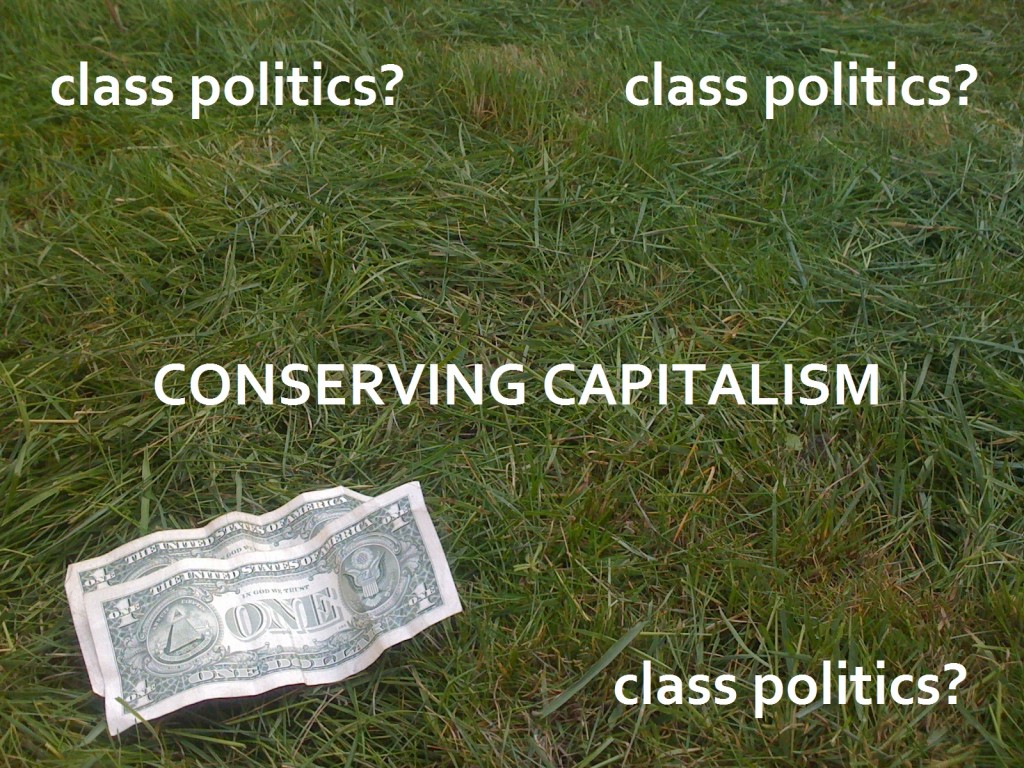Is the Grass Greener?
It is obvious to many that the Labour Party are no longer willing or capable of presenting any answers for the working-class. In Labour-run Council’s where their own councillors have the temerity to stand by their electorate and refuse to accept the inevitability of Con-Dem cuts such councillors are simply ejected (see “Don’t vote for cuts – Councillors have a choice”).
Even when in supposed opposition Labour still kow-tows to the cuts. Thus in Bristol after rhetorically opposing the Mayor’s £83 million gutting of the Council’s budget, Labour Councillors soon changed their tune to support the cuts once they had a promise that £1 million of the proposed cuts would not be made.
Rob Telford, a Green Party councillor for Ashley (Bristol) is correct in observing how: “The red, blue and yellow parties are committed to savage spending cuts forcing our Council to cut services needed by the people of Bristol, especially the most vulnerable and economically disadvantaged.” That said, in an email to the Socialist Party Rob Telford denied that if they were in power they could do anything to oppose the government’s cuts, writing: “You cannot set a needs budget without it being deemed illegal and civil servants stepping in to do your job for you.”
Differentiating themselves from Labour, Green councillors when in opposition are at least fairly steadfast in their opposition to cuts. In Bristol for example, three of the cities four Green councillors voted against the Mayor’s revenue budget, while their fellow Green councillor and assistant to the mayor’s “rainbow cabinet” Gus Hoyt, was less principled and failed to vote against the budget. Using his public profile to misinform the public, shortly after joining the Mayor’s cabinet in late 2012, Hoyt wrote in Bristol24-7 that:
“As a Green (and personally) I am fundamentally against the cuts that Westminster is forcing on the country. I believe they are ideologically driven and that the money can be found elsewhere (clamping down on irresponsible corporations and tax avoiders, for example).
“This does not change the fact that as a local authority we have no alternative but to accept the financial situation which has been imposed upon us. Savings of £34m have to be found, but I will do my best to ameliorate the effects on the most vulnerable. Clearly this is not a position I ever wanted to be in, but with power comes responsibility.”
Yes indeed, with power comes responsibility, which is exactly why socialist candidates when elected to councils do their utmost to raise the possibility of fighting to oppose injustice, especially injustice mandated by the government. The same is as true for TUSC councillors as it is for Kshama Sawant in Seattle, who is fighting tooth and nail to represent the working-class as best she can.
Unfortunately there are too many examples of Greens failing their electorate once in power. Thus even before the ongoing fiasco that the Greens are overseeing in Brighton and Hove (see “Greens, making cuts or opposing cuts?“) as early as 2006, Brighton Green councillors “supported privatisation through transferring council housing management to a private company. Yet a Defend Council Housing campaign saw these Labour-led plans overturned and the council housing stock remained under public control.”
Similarly, in Lewisham, “for four years (2006-10), two Socialist Party and six Green councillors sat in a hung council. And while they sometimes united to oppose the cuts, ‘the Greens more often sided with New Labour on key votes, or abstained to help give it a majority, including votes on cutting council services, homes privatisation plans, and academy schools.’”
While in the 2006 elections in Lewisham, “the Greens stood one candidate in each of the multi-candidate Labour wards but when it came to the ward being defended by two Socialist Party councillors — Telegraph Hill — they stood a full slate, splitting the vote and allowing Labour to take the third seat.”
Finally, although the Green Party puts forward many useful policy proposals that socialists support, such as demands for a ‘living wage’, a 35 hour week, rail renationalisation and an end to PFI and university tuition fees, there are many policies that are of no use to building a working-class resistance. Not least the fact that the Green Party fails to challenge the dictates of capitalism and views itself as a ‘broad church’ encompassing views ranging from left to right. Early popular slogans included talk about moving beyond Left and Right, hence the willingness of many of their leading lights to work with even the most reactionary forces amongst the ruling-class. Here I am thinking of people like Teddy Goldsmith, who founded The Ecologist magazine in the early 1970s (for criticisms of his reactionary politics by one of The Ecologist’s longserving editors see “Blood and culture: Ethnic conflict and the authoritarian right”).
Furthermore as the Socialist Party noted in an article in 2010:
“Regarding trade unions, the [Green] party’s manifesto wants to end ‘the corrupting effects of big private and trade union donations to political parties, and bring in a fair system of state funding’. This indicates that they want trade unions to be non-political, which would greatly hinder the working class from developing a political voice.”
Given that the Green Party choose not to recognize capitalism as a central problem that needs to be replaced by a socialist alternative, but merely reformed, this naturally leads Green economic writers to promote all manner of utopian projects. Green Party eco-socialist, Derek Wall, expounded upon this idea in a 2003 article titled “Social Credit: The Ecosocialism of Fools”, which warned of the problems associated with such an misguided political approach which has problematically led to the adoption of the ideas of monetary cranks with the Green Party. Two key individuals that Wall mentioned were Brian Leslie, whose parents were members of the Social Credit Greenshirts during the 1930s, and whom currently chairs the Green Party Economics Working Group. And the Green Party’s economics speaker Molly Scott Cato who likewise advocates monetary reform as a necessity to creating a more just world order.
Molly Scott Cato who is a Professor of Strategy and Sustainability in the Business School at the University of Roehampton, also happens to be the Leader of the Green Group of councillors on Stroud District Council. “The Green Group” consisting of five Green Party councillors along with independent councillor Andy Reed. Here, as the Greens are in opposition, Stroud’s Green councillors work closely with Stroud Against the Cuts, a group which is clear in its opposition to all cuts.
Given the longstanding connections between monetary reform cranks and spiritualists, it is fitting that Molly Scott Cato is a core group member (and former chair) of Stroud Community Agriculture, which describes itself as “a community-led enterprise, which is developing a local farming business to produce fresh organic/biodynamic produce for its members.” Biodynamic farming having been invented by Christian spiritualist Rudolf Steiner (1861-1925), with biodynamic cultivation being a mystical form of farming that holds that astral and zodiacal forces can be harnessed by farmers to maximize agricultural productivity. As it happens, Stroud happens to be a bit of a hub for Rudolf Steiner’s magic and the national offices of the Biodynamic Agricultural Association are based there; for further criticisms of Steiner’s legacy, see “The art of avoiding history.”
It also turns out that there is quite a strong crossover between the magical ideas of Rudolf Steiner and the Green movement today. Thus Simon Pickering (who is the councillor for Slade Ward in Stroud District Council) is employed as the Senior Ecologist for Ecotricity, which bills itself as the world’s first Green Electricity company. Advisers for this green company include former longserving Director of the Soil Association and now patron of the Biodynamic Agricultural Association, Patrick Holden. While other notables include green Etonian Jonathon Porritt, and the Managing Director of the UK arm of the Triodas Bank, Charles Middleton. The Triodas Bank being a major finanier of green projects around the world which follows the philosophy initiated by Rudolf Steiner, anthroposophy.
Such mystical thinking is especially attractive to members of the bourgeois who struggle to understand the world around them. Hence it is interesting that several board members of the Fawcett Society, of which Green Party leader Natalie Bennett is a trustee also maintain their own mystical interests. Thus one has the example of Anna Mapson who is a governor of the just-opened Steiner Academy Bristol, which follows Rudolf Steiner’s magical form of educational pedagogy, embodied in their Waldorf schools. Or take Tory human rights barrister Joanne Cash who is also a board member of the education consultancy Mind Gym which includes Bristol based academic mystic Professor Guy Claxton as one of their cofounders. The final Fawcett Society trustee who is mystically-inclined is their vice chair Lee Chalmers, who is a corporate Development and Leadership Consultant, a field in which mumbo jumbo has a firm hold with regard the ongoing training of future capitalists management elites.
Given the integration of such mystical beliefs within the Green Party and within the ruling class more generally it is little wonder that the only political organisation currently capable of reasonably representing the interests of the working-class at elections is TUSC. Hence the fact that TUSC are standing more than 550 candidates at the forthcoming election is a good sign indeed.
Further Reading: introduction to an upcoming pamphlet Fight Environmental and Economic Destruction – A Socialist Strategy to be published soon by Socialist Alternative.



